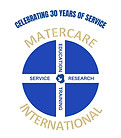WHO Updates Maternal Health Summary: Progress and Persistent Challenges
- MaterCare International

- Jul 29, 2025
- 2 min read
Every day, pregnancy and childbirth should be moments of hope and new beginnings. Yet, according to the World Health Organization’s latest report, 2023 saw a sobering reality: over 700 women died each day from preventable causes related to pregnancy and childbirth. That equates to one maternal death every two minutes a stark reminder of the urgent work that remains.
The April 2025 data from WHO highlights significant progress made between 2000 and 2023. During this period, the global maternal mortality ratio (MMR) which measures the number of maternal deaths per 100,000 live births fell by around 40% worldwide. This achievement reflects the collective efforts and countless local initiatives focused on improving maternal care.
Despite this, maternal deaths remain deeply unequal. In 2023, over 90% of all maternal deaths occurred in low- and lower-middle-income countries. These figures underline that the greatest burden continues to fall on the most vulnerable women, often living in rural areas or fragile healthcare systems.
At MaterCare, we know from decades of fieldwork that these women too often face barriers that wealthier countries have largely overcome: limited access to skilled health professionals, essential medicines, safe facilities, and timely emergency care.
The WHO report reaffirms what MaterCare has long believed and practiced: care provided by skilled health professionals before, during, and after childbirth can save lives both of mothers and their newborns. Investments in maternal healthcare are investments in families, communities, and future generations.
As we reflect on the data, we are reminded that behind every statistic is a mother, a family, and a story of potential lost too soon. Let us renew our commitment to work for a world where no woman dies giving life.
WHO April 2025 Update is available at: https://www.who.int/news-room/fact-sheets/detail/maternal-mortality



Comments